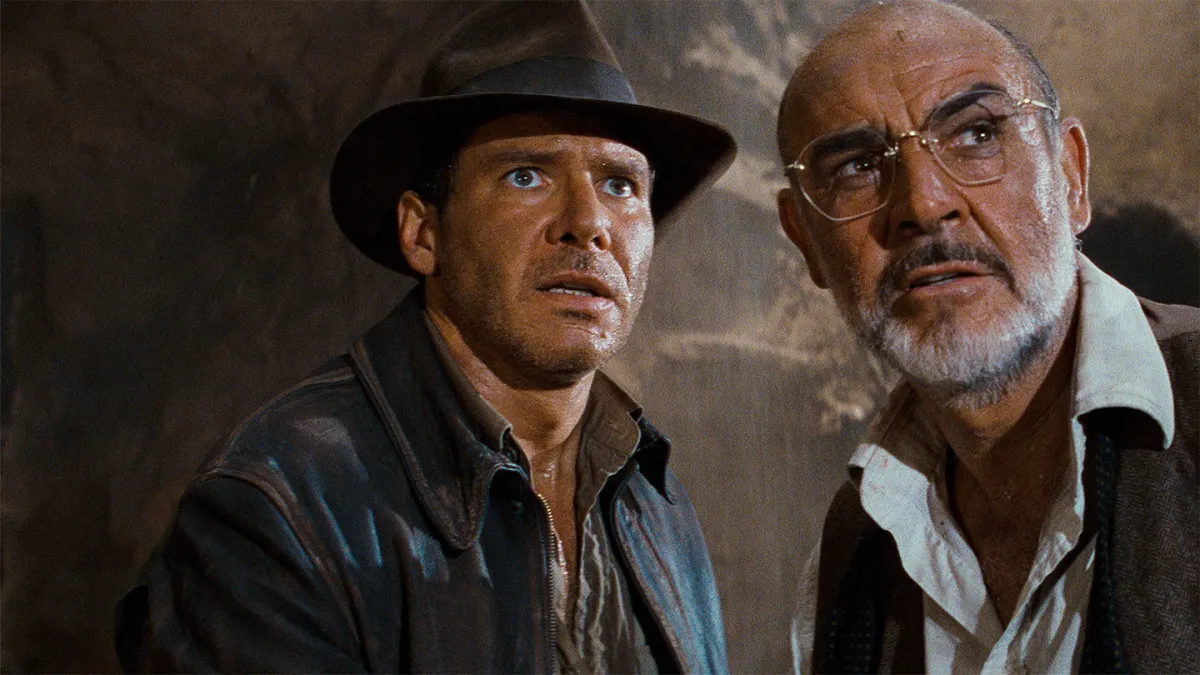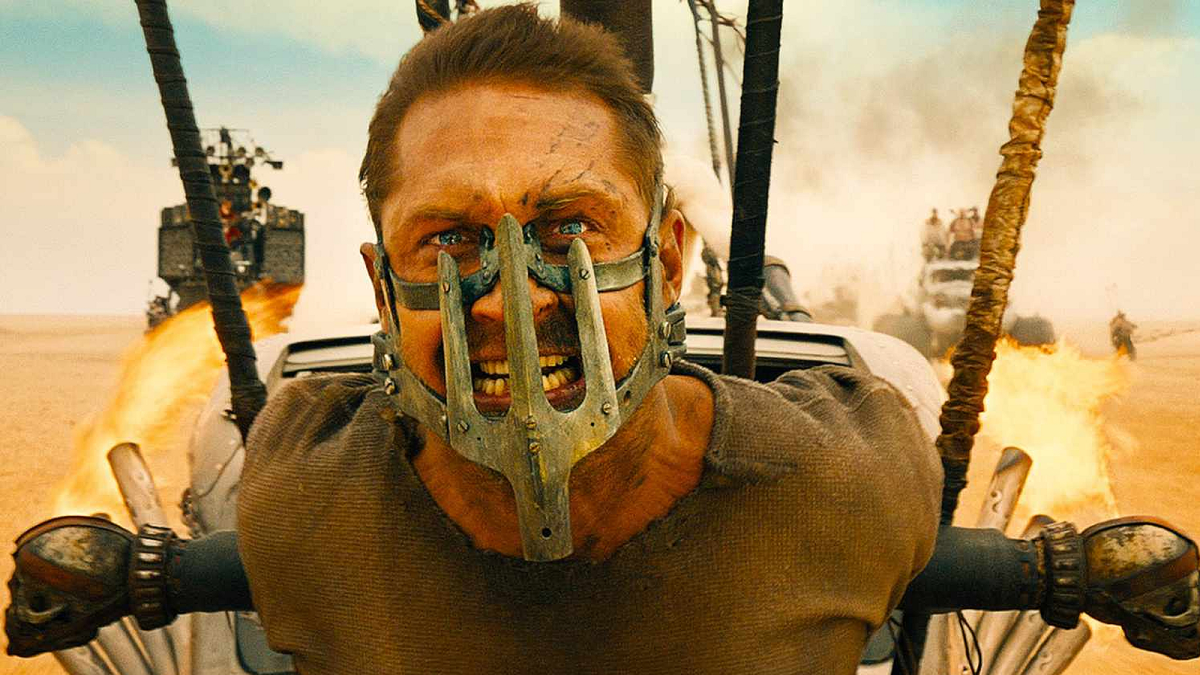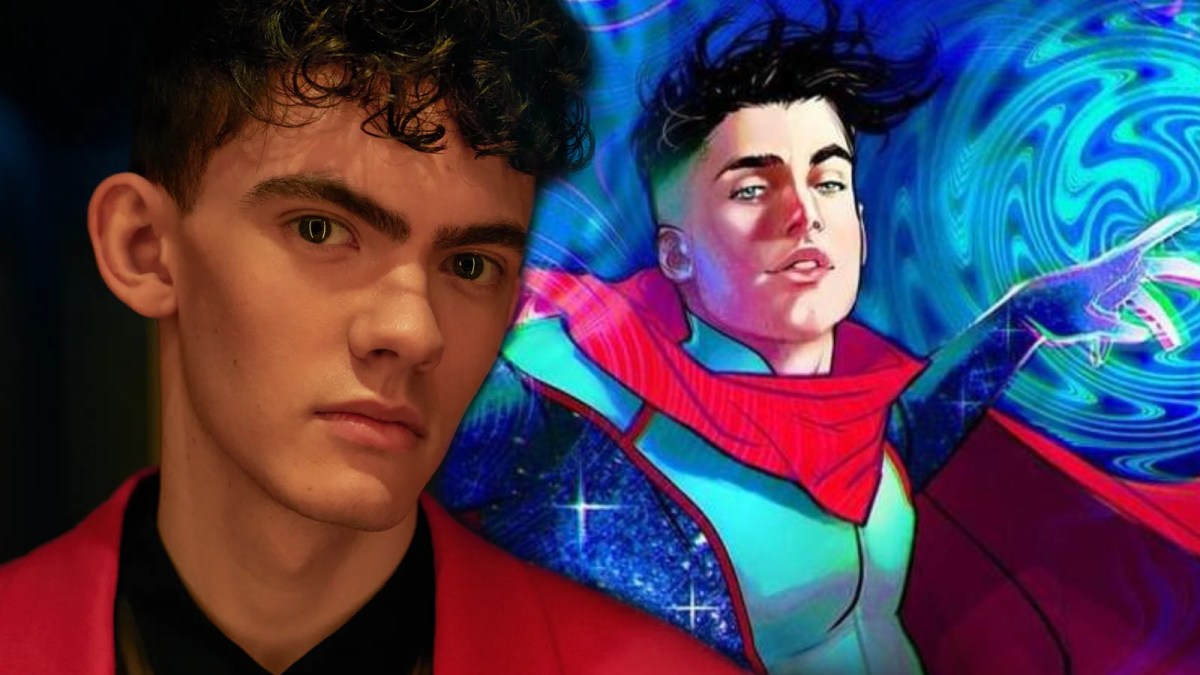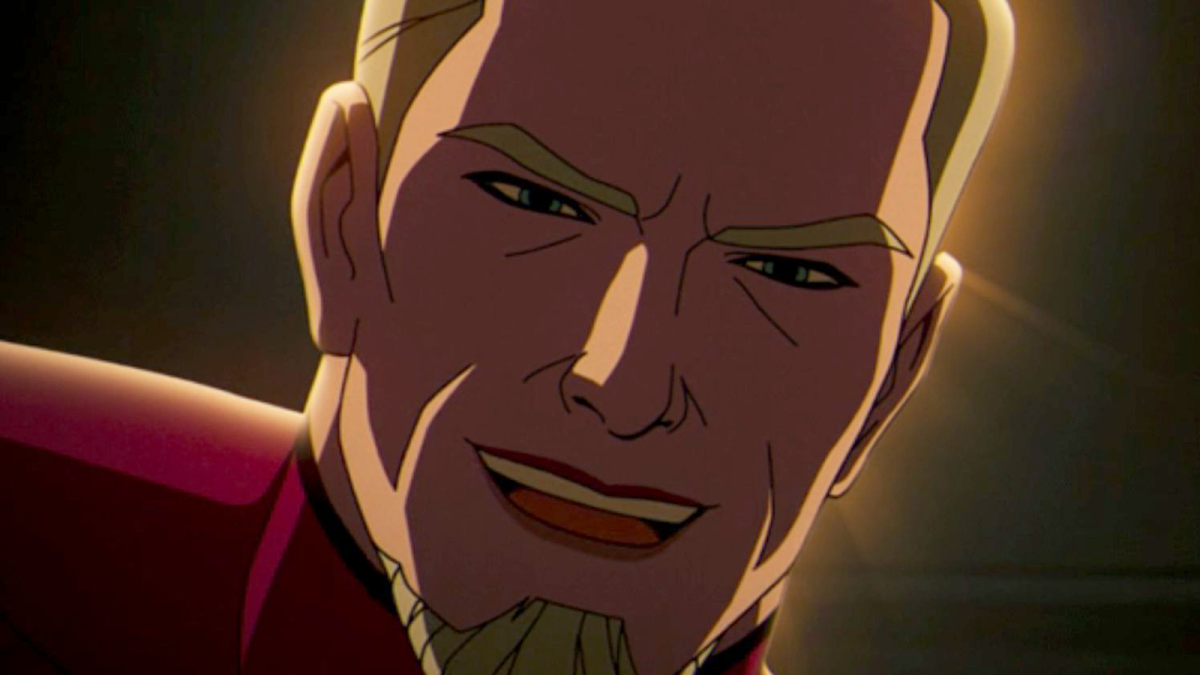The release of Indiana Jones and the Dial of Destiny has reopened the debate about whether the title character should ever be played by anybody other than Harrison Ford.
The role has been played by other actors in other media, such as Sean Patrick Flanery (and Corey Carrier, and George Hall) in The Young Indiana Jones Chronicles, but Ford feels a sense of ownership. “Nobody is going to be Indiana Jones, don’t you get it?” Ford told Today in May 2019. “I’m Indiana Jones. When I’m gone, he’s gone. It’s easy.” Last May, Lucasfilm chief Kathleen Kennedy told Vanity Fair, “We would never make Indiana Jones without Harrison Ford.”
Of course, only time will tell whether another actor takes up the iconic bullwhip and fedora. Still, there is at least some dignity in recognizing the bond between an actor and their iconic role, acknowledging the work that Ford has done in bringing Indiana Jones to life and respecting how closely the two are threaded. As such, it’s interesting that nobody seems to be asking the same question about the two other creatives so closely tied to the Indiana Jones film franchise.
It is impossible to understand the first four Indiana Jones films without considering director Steven Spielberg and producer George Lucas. These two filmmakers, two of the original “Movie Brats” of the New Hollywood era, were an essential part of what made the Indiana Jones films work in the way that they did. More than that, the four films are undeniably tied up in the pet themes, stylistic sensibilities, and interests of these two filmmakers.
According to Lucas, Raiders of the Lost Ark stemmed from Spielberg’s desire to make a James Bond movie, having been rejected by the Broccolis. However, the film also plays to Lucas’ interest in pulpy genre fiction. If Star Wars allowed Lucas to riff on classic science fiction movie serials, then Raiders of the Lost Ark evoked classic adventurers like Allan Quatermain. It was a loving homage to media that the pair had loved as children, what critic Scott Mendelson describes as a “rip off instead of remake.”
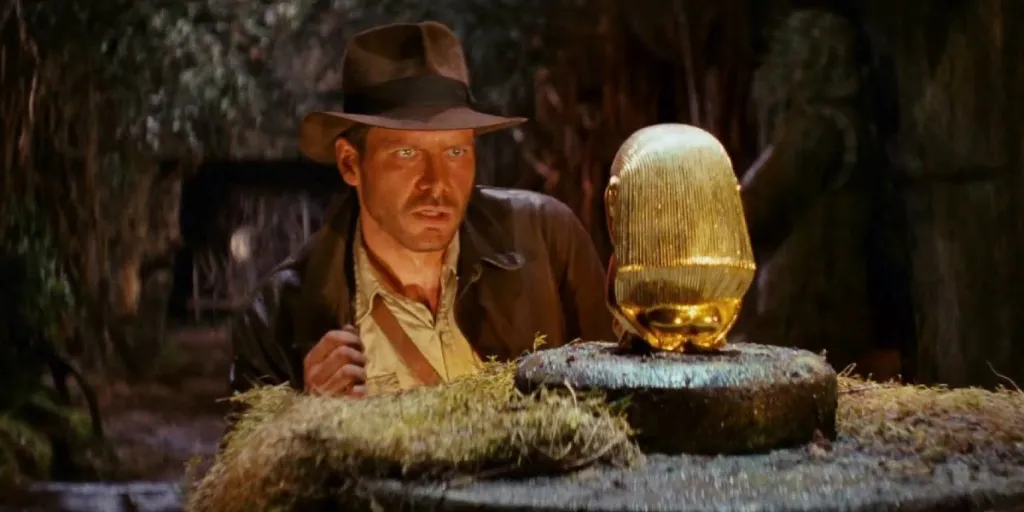
More to the point, for all that Raiders of the Lost Ark is a cinematic joyride, it also reflects Spielberg’s recurring themes and interests. It is part of Spielberg’s continuing engagement with the legacy of the Second World War. This is a recurring preoccupation for the director, rooted in his father’s service during the conflict. More than that, critics have also long made the case that the film is best understood in the context of Spielberg’s relationship to his Jewish heritage.
Spielberg has talked about his experience of antisemitic bullying as a child, and how he “often told people (his) last name was German, not Jewish.” Although Spielberg would more directly engage with this side of his heritage in later films like Schindler’s List or The Fabelmans, there is a recurring subtext simmering through many of his early films. At one point in Jaws, for example, Quint (Robert Shaw) makes an aside about how Hooper (Richard Dreyfuss) has been “countin’ money all (his) life.”
Raiders of the Lost Ark is essentially a film in which a secular archaeologist is confronted with the power of the Jewish God, as the Ark of the Covenant wreaks terrible vengeance upon the Nazis who would seek to exploit it. There is something of a revenge fantasy at play here. To modern moviegoers, the sequence in which the Nazis burn and melt alive after opening the Ark evokes the climax of Quentin Tarantino’s Inglourious Basterds with its “face of Jewish vengeance.”
“Raiders of the Lost Ark is the work of Spielberg’s recaptured adolescence, I think; it contains the kind of stuff teenage boys like, and it also perhaps contains the daydreams of a young Jewish kid who imagines blowing up Nazis real good,” argued Roger Ebert in a retrospective review of the film. “Raiders may have an impersonal superstructure, but its foundations are personal, and passionate.” It has been reclaimed in recent years as “the most audacious Holocaust movie ever.”
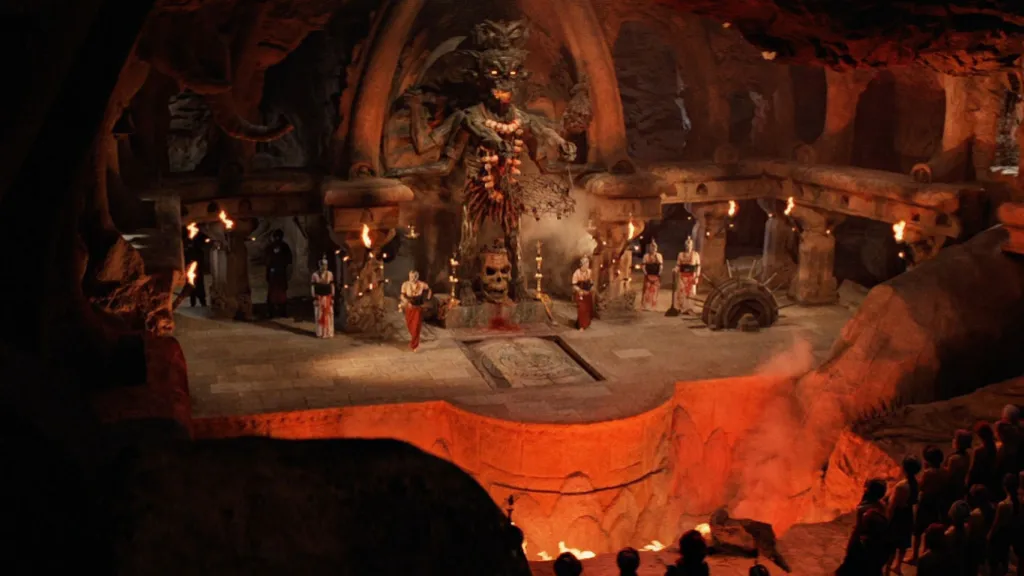
The follow-ups are no less personal. Indiana Jones and the Temple of Doom is a surprisingly grim and dour affair. In that prequel, Indy finds himself stranded with a woman he can’t stand and who can’t stand him in return (Kate Capshaw) and a smartass kid (Ke Huy Quan). To reinforce this theme, the globetrotting adventurer spends most of the movie trapped inside a beautiful Indian palace. After a gross dinner party, Indy and his companions find themselves drawn into the hellish caverns beneath the royal court.
The metaphor isn’t subtle. Temple of Doom has what can charitably be described as “big divorce energy,” only matched by James Cameron’s work on projects like The Abyss or True Lies. It shares a surprising amount of tone with Poltergeist, a movie produced (and long-rumored to have been shadow-directed) by Spielberg two years earlier, another horror movie about the nightmares lurking literally underneath a seemingly idyllic family unit.
Spielberg has since disavowed the darkness of Temple of Doom, claiming that there was “not an ounce of (his) own personal feeling in Temple of Doom” and that he was just a “director for hire” for Lucas. In contrast, Lucas owns the darkness in Temple of Doom. “Part of it was I was going through a divorce, Steven had just broken up and we were not in a good mood, so we decided on something a little more edgy,” Lucas explained. “But that’s kind of what we wanted to do, for better or worse.”
The previous year, Lucas had gone through a painful divorce from his wife Marcia, which was publicly announced a month after the release of Star Wars: Return of the Jedi. Spielberg was recovering from his breakup with Kathleen Carey, the woman whom he credited with getting him to be “a little more open” and with whom he had been planning to have children. There is no way to make sense of Temple of Doom without parsing it through the mindset of Lucas and Spielberg at that moment.
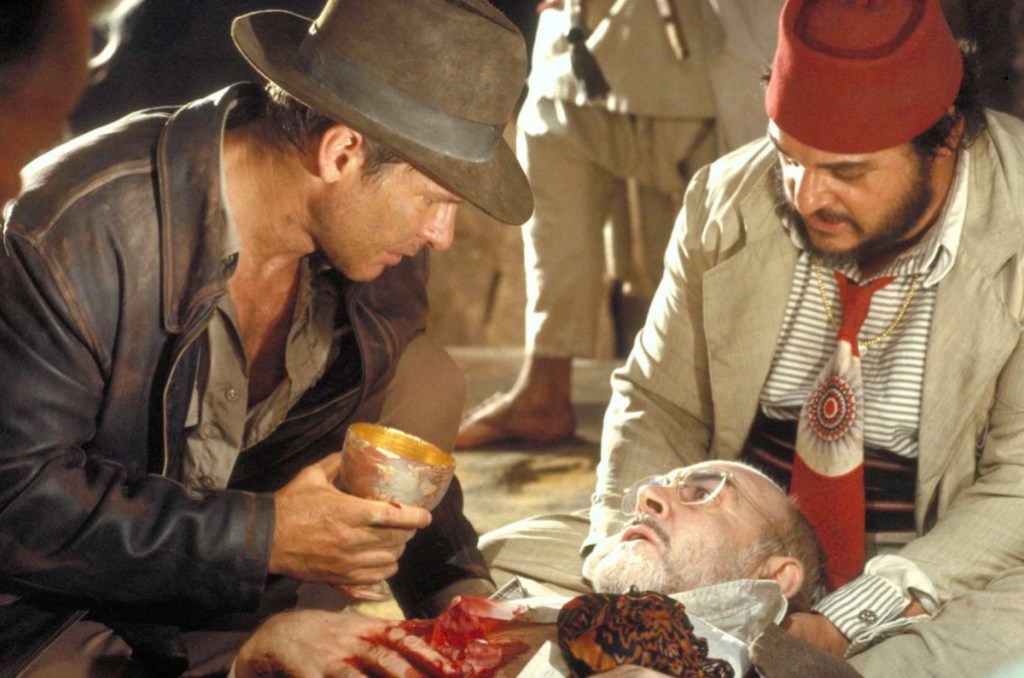
This darkness may also have been inspired by the tragic accident on the set of The Twilight Zone just a year earlier that resulted in the death of actor Vic Morrow and two children. The Twilight Zone was produced by Spielberg. While Spielberg never visited the set where the accident occurred and was never subpoenaed in the subsequent investigation, he has acknowledged that it profoundly affected him. Temple of Doom is, after all, a story in which children are brutalized and tortured.
As critic Caryn James noted in her contemporary review, the third film in the series, Indiana Jones and the Last Crusade, “is the Indiana Jones film that shows Mr. Spielberg’s signature most plainly.” It was Spielberg who centered the movie around Indy’s absent father, Henry Jones Sr. (Sean Connery), conceding, “The dad thing was my idea.” There is a solid argument to be made that The Last Crusade is perhaps the most Spielbergian movie that Steven Spielberg has ever made.
Indiana Jones and the Kingdom of the Crystal Skull is similarly filtered through the interests of the series’ twin architects. Lucas gets most of the blame here for his insistence on including “interdimensional beings,” to the point that — as with Temple of Doom — Spielberg has been able to offload a lot of the criticism onto his old friend. “I didn’t want these things to be either aliens or inter-dimensional beings,” Spielberg told The Hollywood Reporter. “But I am loyal to my best friend.”
However, there is a lot of Spielberg in Kingdom of the Crystal Skull. Indeed, the film is as much an exploration of how Spielberg has grown and evolved since the original three films as it is a portrait of an older Indiana Jones. The original three films were the product of a somewhat innocent young director swept up in the nostalgia of the Reagan era, constructing simplistic black-and-white morality tales against the backdrop of the Second World War, mythologized as “the Good War.”
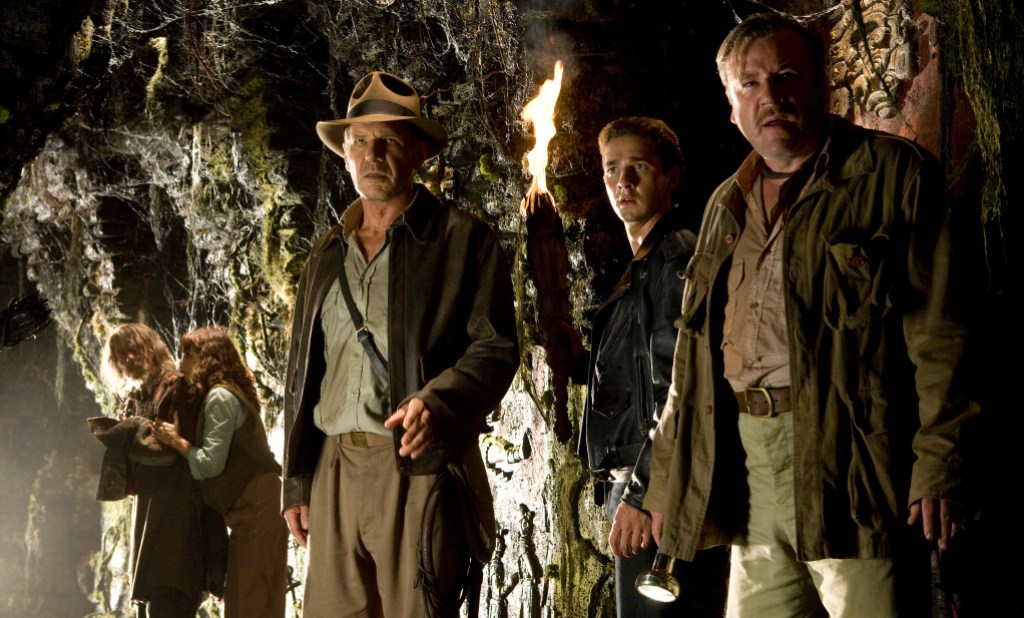
By the time Kingdom of the Crystal Skull came out, both Spielberg and America had changed. There was a shift in Spielberg’s work before 9/11, as demonstrated by A.I. Artificial Intelligence and Minority Report, the latter shot before the attacks but released afterwards. However, Spielberg’s 21st century films were decidedly more cynical in their approach to violence and action. The two films Spielberg made before Kingdom of the Crystal Skull were War of the Worlds and Munich.
Kingdom of the Crystal Skull eschews the black-and-white morality of the earlier films. The opening sequence makes explicit the implication that Raiders of the Lost Ark was, to quote critic Michael Castelle, “a fairy tale about the origin of the atomic bomb.” Indy stumbles across the Ark of the Covenant in Area 51, reminding him and us of the morally simplistic superweapon that only punishes the wicked, before witnessing the real and indiscriminate power of an atomic bomb that could lay waste to civilians.
The villains of Kingdom of the Crystal Skull are Soviets led by Irina Spalko (Cate Blanchett), but the film reflects the paranoia of the Bush era through the lens of the Red Scare. Indy finds his war record questioned by two FBI agents (Joel Stoffer and Neil Flynn). He is betrayed by his old friend George “Mac” McHale (Ray Winstone), but not because Mac rejects American ideals. “Well, what can I say, Jonesy?” he asks. “I’m a capitalist, and they pay.” The stark shadows and silhouettes of Douglas Slocombe’s cinematography on the original trilogy give way to the murkier palette of Janusz Kamiński. Boundaries are less clearly defined.
This evolution is reflected in the argument, advanced by David Ehrlich, that Kingdom of the Crystal Skull reconciles family and adventure as “the twin-piston engine that powers most Spielberg films.” It argues these are not mutually exclusive choices, as they seemed when Indy was trapped by his surrogate family in Temple of Doom and abandoned the Grail to embrace his father in The Last Crusade. In some ways, for all its clumsiness, Kingdom of the Crystal Skull can be seen as a maturing of Spielberg’s filmmaking.
Indiana Jones belongs as much to Spielberg and Lucas as it does to Ford, and Dial of Destiny feels strangely divorced from their sensibilities. In this age of recycled intellectual property, the likelihood of the work of creators being allowed to stand as its own object seems remote. Still, when Spielberg and Lucas wanted to make an Allan Quatermain film, they created their own character. Maybe any studio or filmmaker wanting to make their own Indiana Jones film could take a cue from those two.

